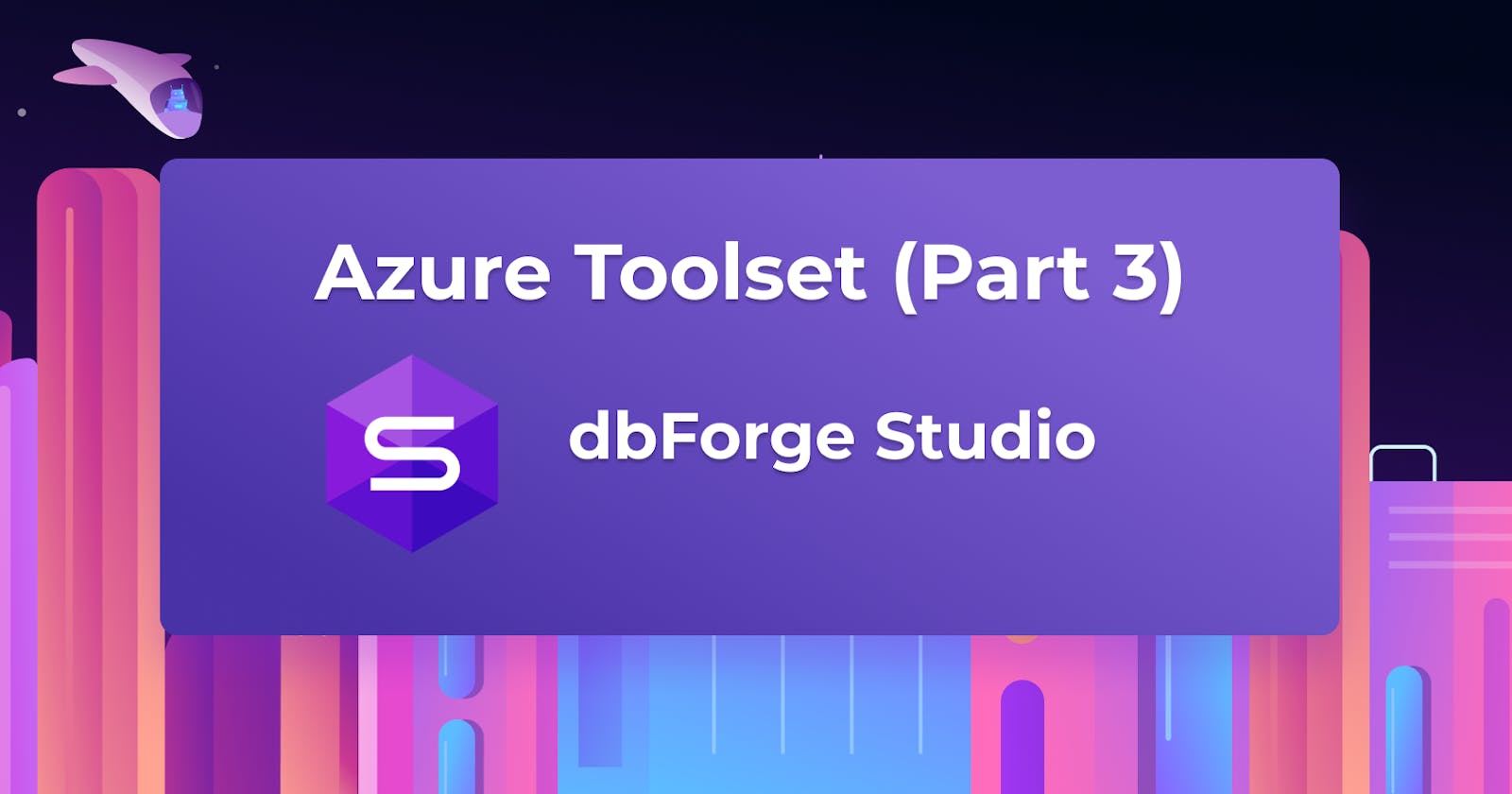Previously we looked at some of the most common native Azure tools for SQL databases. These included Data Studio, Powershell, SSMS, Explorer, and more. Today, we will go through some common tools offered by dbForge Studio.
dbForge Studio was created by Devart, and its tools are supported by Azure for its various databases such as MySQL, PostgreSQL, Redshift, and more. In fact, dbForge is an alternative to ApexSQL by Quest.
While there are various tools for different purposes in dbForge, we will be looking at some of the most prominent ones out there.
dbForge Complete
dbForge Complete makes code writing process efficient and straightforward. With features such as IntelliSense, smart code suggestions, and automatic refactoring, the tool is intuitive for DevOps teams working with databases like Azure.
It improves productivity by providing reusable code, session documentation, execution history and allowing developers to navigate through files, folders, and objects with relative ease. Besides all this, dbForge Complete also offers a debugger for the SSMS. With this, one can debug the code, observe the run-time behavior of objects, and eliminate logic errors.
dbForge Data Compare
With dbForge Data Compare, you can perform database comparisons, and the tool will enable you to handle big data quite easily. Furthermore, its simple UI can help you see the differences between the source control project and the data from the local scripts.
You can also synchronize the data with the servers, generate comparison reports, and integrate with the SSMS. The tool also identifies missing or damaged data by comparing the database with native backups and helps you repair it.
dbForge Data Generator
Similarly to ApexSQL, dbForge’s Data Generator tool generates test data for the various types of columns in a database. This saves you hours of entering the data manually. It has over 200 data generators and allows you to create custom generators as well.
A few examples of data generators include generators for health-related data, IT, business, payment, product, person, location data generators, and more. The tool also ensures that the inter-column dependencies and domain integrity are maintained. Besides this, you can automate and schedule the process with the help of a CLI.
dbForge Fusion
dbForge Fusion comes in the form of an add-in or plugin for MySQL and Visual Studio. It helps with making all database management tasks and operations easier and more efficient.
This tool does so by allowing you to perform administration, management, comparison, scripting, and code generation tasks directly inside of Visual Studio. It also provides interesting features such as T-SQL debugger and smart code completion, it is capable of profiling SQL queries, providing information on schema objects, and more.
Besides these, the add-in also helps with synchronizing table data between servers, performing analysis of the differences, comparing structures of different databases, and performing other operations.
However, it is also a necessary tool for creating database diagrams and visualizing the different objects and their interdependencies, and understanding how you can optimize your database structures.
dbForge Query Builder
As the name suggests, the Query Builder allows you to write queries in a fast and smooth manner, irrespective of how complex they are. Moreover, its intuitive suggestions let you choose the most apt queries for a particular task and help you get your results easily.
The tool doesn’t require you to code while constructing data manipulation queries. It also helps with other functions such as the auto joining of columns with foreign and primary keys, combining queries, and creating custom sorts and filters based on your requirement.
Besides this, one of its most compelling features is that it can reverse engineer the queries and transform them into visual representations.
dbForge Schema Compare
The Schema Compare tool helps compare databases, native backups, and even local scripts. It also performs synchronization operations and helps you automate and schedule them. The results can be exported as docs in HTML, Excel, and XML formats.
A few other operations the tool can perform are setting up database development, restoring functions and procedures from backups, and generating deployment T-SQL scripts.
dbForge SQL Azure Backup
This is one of the most valuable dbForge tools made by Devart and it’s tailored specifically for Azure databases. The tool helps create backups of T-SQL scripts, import cloud databases onto on-premise servers, and even restore databases from an archive.
It has four major components, including Windows Azure Service, a GUI database backup application, console-based apps for backup and restoration, and a Powershell Interface along with a .NET Framework API.
With these components, you can create backups at regular intervals with little to no human intervention, reduce costs by using lesser space and have a simple process for backing up databases in any environment.
Conclusion
In this blog post, we have gone over some of the most important dbForge tools used by developers working with Azure. This was the third part about some of the most popular SQL database tools targeted towards Azure, and we’ll be concluding the list with top Redgate SQL tools: be on the lookout for the next blog in these series and until next time.

